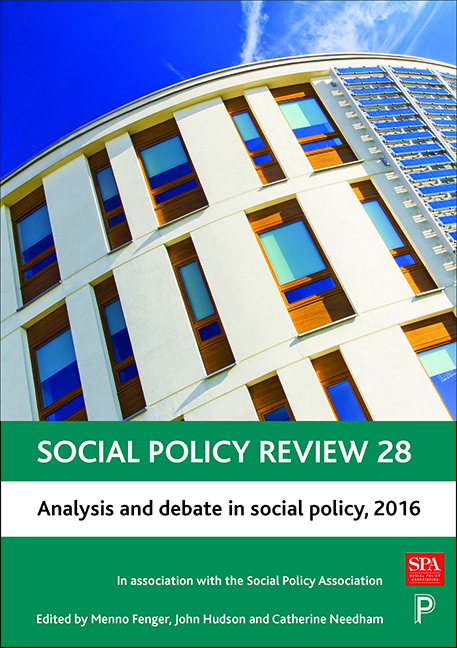Seven - The Troubled Families Programme: in, for and against the state?
Published online by Cambridge University Press: 05 April 2022
Summary
Introduction
State institutions are often authoritarian, they put us down, tie us up with regulations. And many of the working class seem to be defined by the state as ‘irresponsible’, as ‘troublemakers’, ‘scroungers’. If we are born out of wedlock, it defines us as illegitimate. All of these things leave us wondering: if the state is not providing these services in the way we want them, it cannot really be doing it for us. Why does the state provide them?’ (London Edinburgh Weekend Return Group, 1980: 9)
In the aftermath of the Conservative general election victory of 1979, a group of ‘state workers’ published In and against the state. First a pamphlet and then a book, it outlined the contradictory positions they were often forced to take during their work in order to make government welfare policies meet the needs of the people they were working with. Although it is over 35 years since its publication, In and against the state undoubtedly retains its relevance.
It describes the struggle of people – who identified themselves as socialists – working within the state at a time when they felt that the state was not really theirs, if indeed it ever was. The authors noted that cuts to (and rhetoric surrounding) public sector spending were leading to their jobs becoming increasingly disciplined and tightly controlled, forcing them to be more ‘accountable’, in a way more akin to private sector work (London Edinburgh Weekend Return Group,1980: 3). They also discussed at length the ways in which citizens’ engagements with different parts of the state can be unsatisfactory and inadequate for both the service user and service provider:
The ways in which we interact with the state are contradictory – they leave many people confused. We seem to need things from the state, such as child care, houses, medical treatment. But what we are given is often shoddy or penny-pinching, and besides, it comes to us in a way that seems to limit our freedom, reduce the control we have over our lives.
- Type
- Chapter
- Information
- Social Policy Review 28Analysis and Debate in Social Policy, 2016, pp. 127 - 146Publisher: Bristol University PressPrint publication year: 2016

